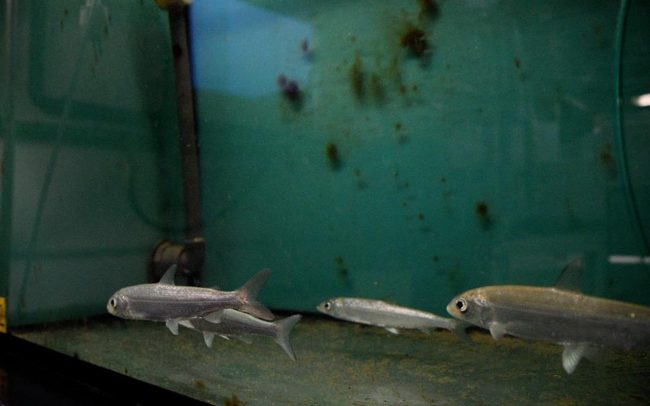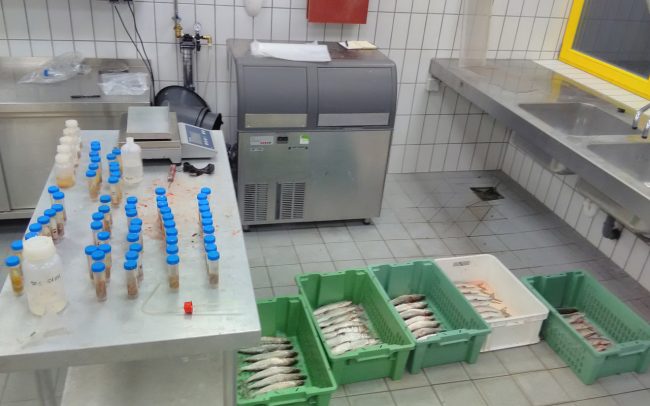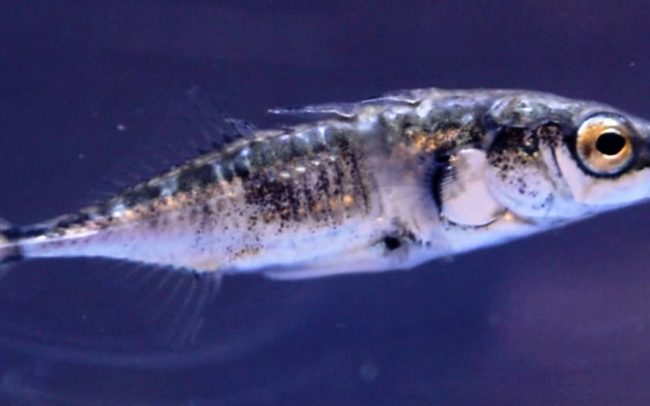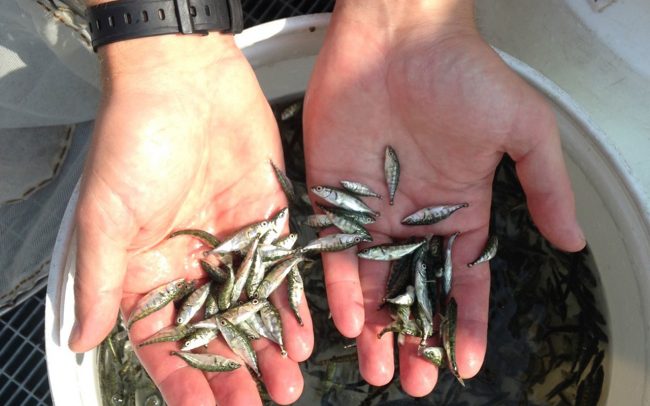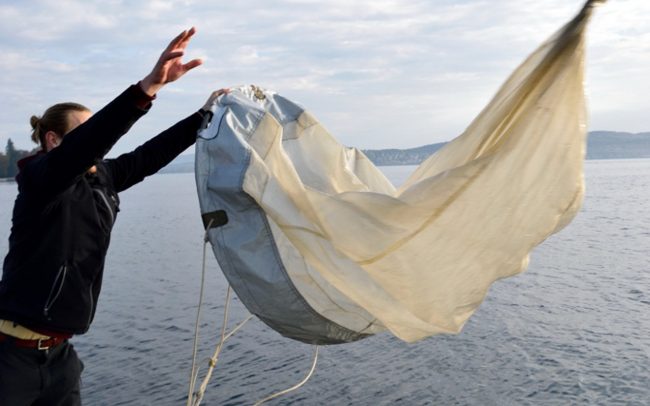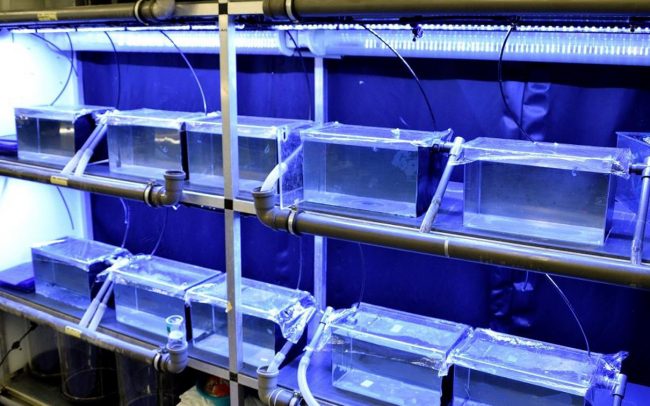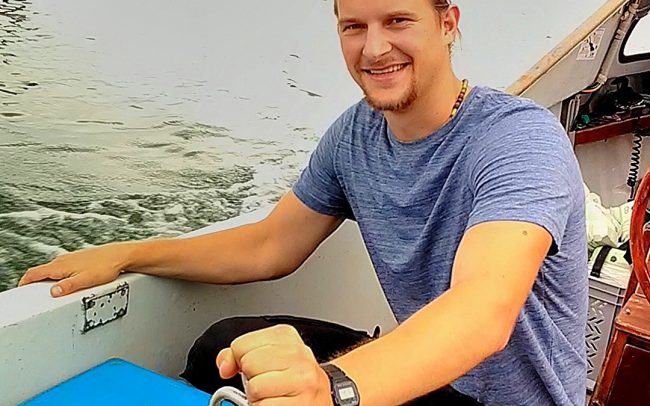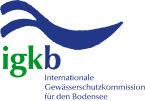
P3: Effects of re-oligotrophication, climate change and invasive species on fish-zooplankton interactions and the population dynamics of whitefish
Whitefish (Coregonus wartmanni) is the most important fish species for the local fishery in Lake Constance and presumably exerts a strong predation pressure on the zooplankton community. Due to re-oligotrophication (phosphorus values dropped from 80 µg/L in the 1970s to values below 10 µg/L nowadays), there is lower primary production and the whitefish population is in decline. The invasive three spined stickleback (Gasterosteus aculeatus), which appeared in the pelagic zone just a few years ago, is an additional threat. It has quickly outnumbered the whitefish population and, according to recent studies (LAC, 2016), it represents 96% of the count and 28% of the biomass of all pelagic fish. Hence, re-oligotrophication as well as the recent invasion of sticklebacks are expected to strongly change fish-zooplankton interactions. Nevertheless, crucial changes occurred also on lower trophic levels in the same years, such as the outbreaks of Daphnia cucullata on the level of zooplankton and Planktothrix rubescens on the level of algae.
In this research project, we are aiming to improve our understanding of whitefish and stickleback diet preferences, and their effects on the zooplankton community. To understand interactions on different complexity levels, we will combine aquaria experiments (functional response experiments with different prey species and prey selection experiments) and field observations (stomach content analysis of both fish species, zooplankton sampling and analysis of long term zooplankton data). We will compare our results with previous fish diet studies, to define responses being related to (a)biotic changes and reversibility of the Lake Constance pelagic ecosystem.
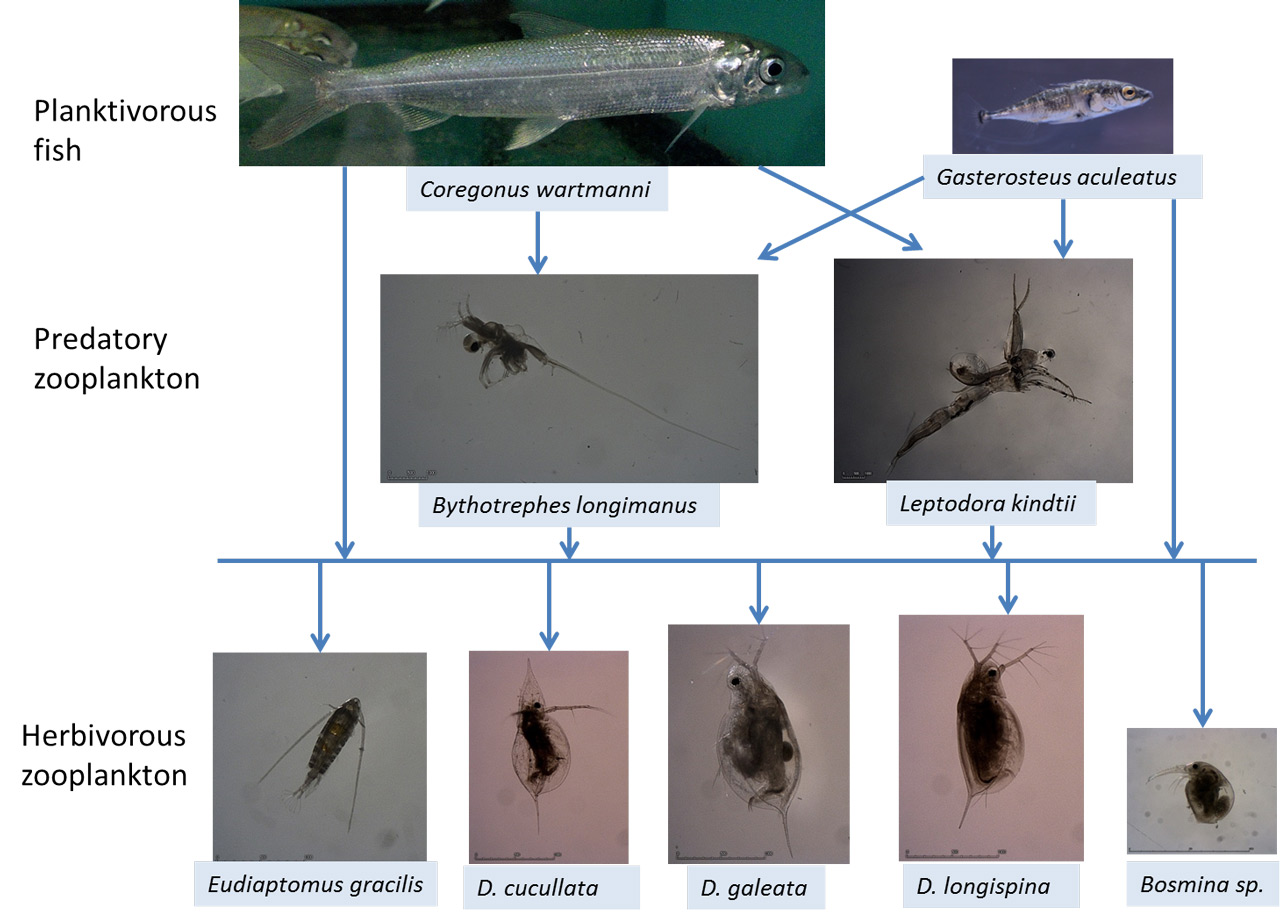

Project team
 M.Sc. Žiga Ogorelec – PhD student (alumnus)
M.Sc. Žiga Ogorelec – PhD student (alumnus)

In collaboration with
 Dr. Jasminca Behrmann-Godel
Dr. Jasminca Behrmann-Godel
Ministry of Rural Affairs and Consumer Protection Baden-Württemberg, Department 26, Germany

Picture 1: whitefish
Picture 2: whitefish stomach analysis
Picture 3: stickleback
Picture 4: caught sticklebacks for aquarium experiments
Picture 5: size and proportions of zooplankton
Picture 6: zooplankton sampling
Picture 7: preparing zooplankton for aquarium experiments
Picture 8: aquarium experiments
Picture 9: sampling abiotic parameters


